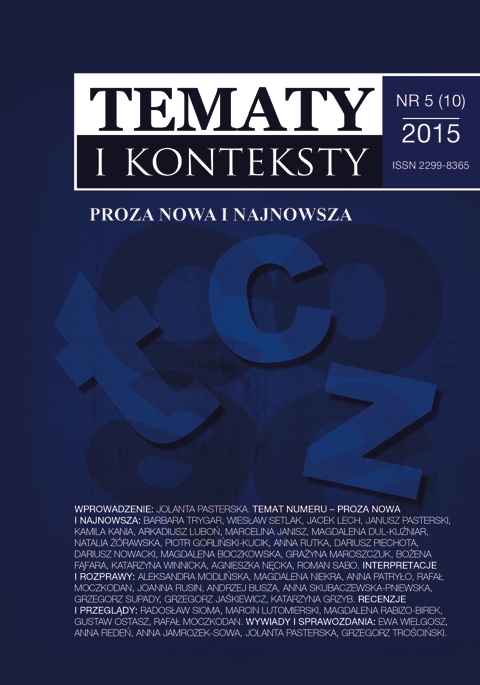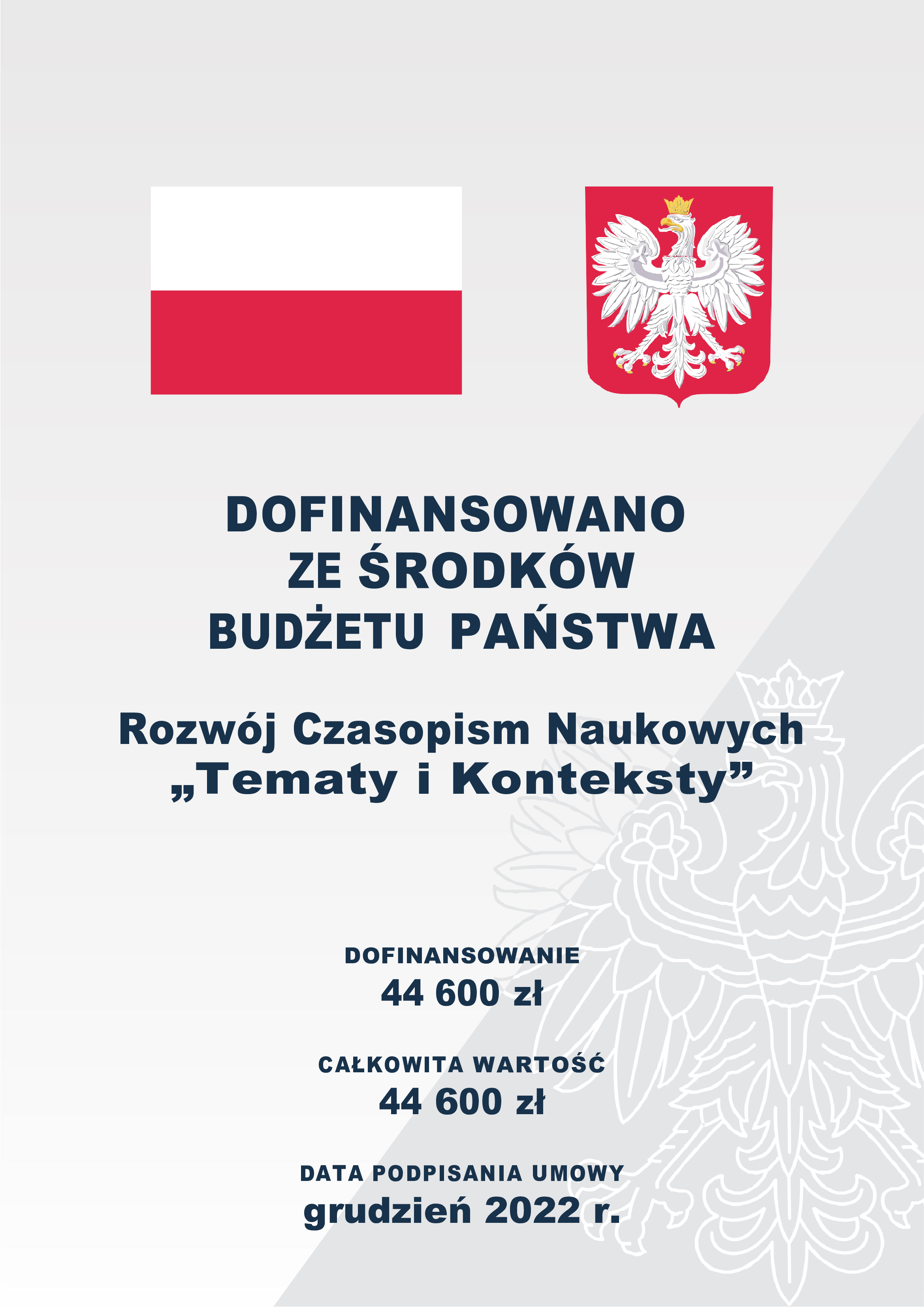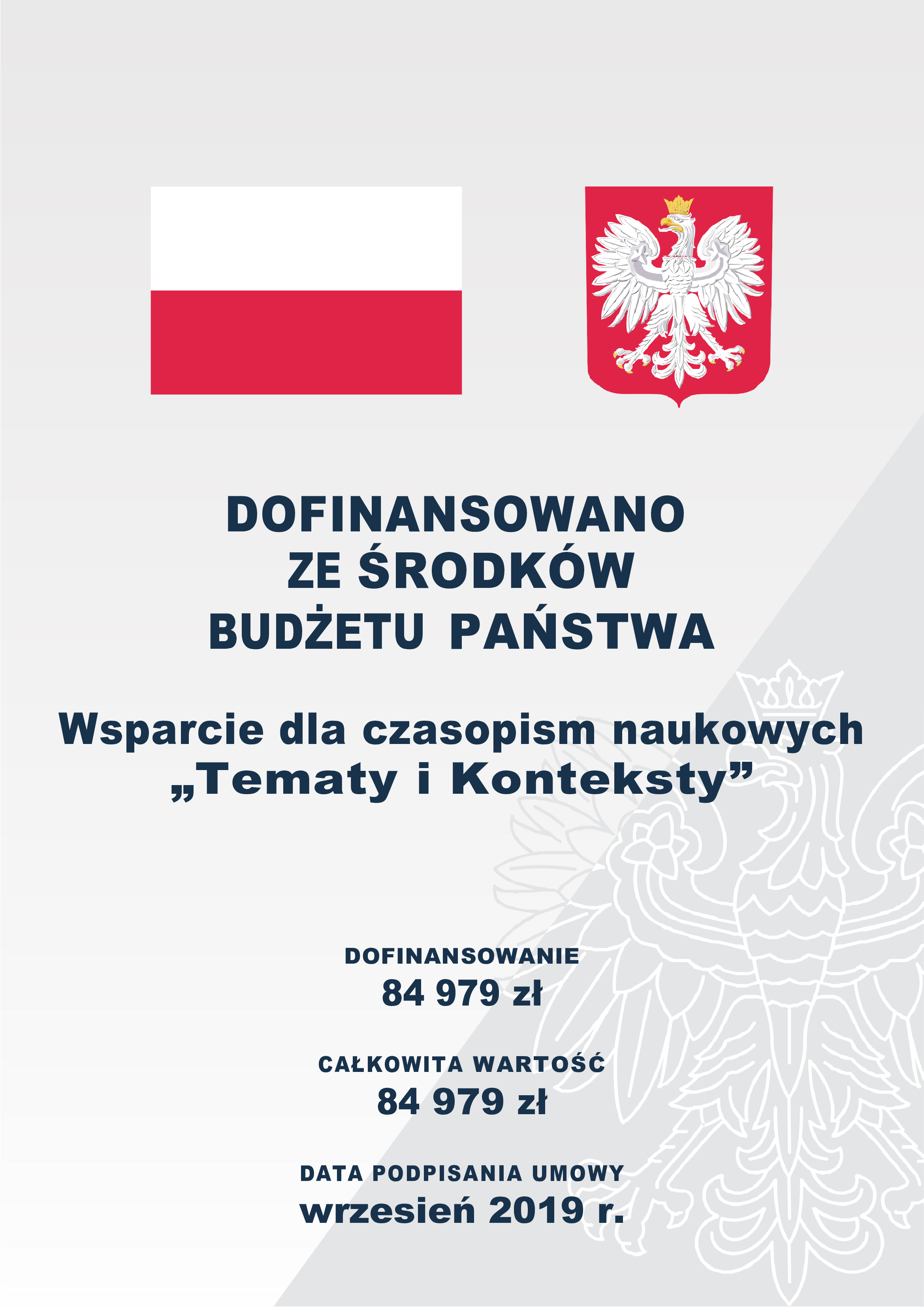Stosunki polsko-żydowskie na przykładzie powieści Dybuk Marka Świerczka (perspektywa antropologiczna)
Słowa kluczowe:
historia, stosunki polsko-żydowskie, tabu, waloryzacjaAbstrakt
The paper aims at discussing the novel 'Dybuk' and contrasting it – in the anthropological perspective – with both its historical and sociological contexts. Świerczek’s novel is set in Poland immediately after the Second World War and it focuses on the problems which afflicted both Poles and Jews. Furthermore, we focus the reader’s attention on the ambiguity with which history was judged after the war – according to Świerczek, it is impossible to judge the postwar reality and interpret the facts connected with this period as ‘the only right ones’. Świerczek creates characters and events on the basis of oppositions: good vs. evil, black vs. white, but he allows a number of characters and their fates to speak out. Nevertheless, the final judgment is left to the reader.
Downloads
Pobrania
Opublikowane
Jak cytować
Numer
Dział
Licencja
Prawa autorskie (c) 2015 Tematy i Konteksty

Utwór dostępny jest na licencji Creative Commons Uznanie autorstwa – Użycie niekomercyjne – Bez utworów zależnych 4.0 Międzynarodowe.




